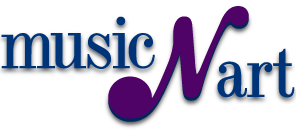
Everyone has a unique sound in their voice! This special frequency constitutes an integral part of each person and through that they have the chance to express themselves and communicate with others. When our voice’s timbre changes it reveals our emotional state (happiness, sadness, etc.). In singing, the artist’s voice along with interpretive movement and body language, constitute a strong combination of expression. For students, voice, is a special musical instrument they are required to learn and develop! Vocal and diction lessons are a wonderful journey of getting to know our voice and by extension our own selves. Through the lessons the students are taught the right way of using their vocal capabilities. The lessons include, technique, reading notes, good-proper use of the voice, resonance, voice range, clarity, articulation, correct body posture, relaxation-body calmness, breathing and diaphragm support. Stage performance is also emphasized and especially the student’s emotion, movement and improvisation. The overall goal of the lesson is for the student to gain a unique singing timbre and not just imitate famous artists!
Most of the vocal lessons’ themes are similar regardless of the kind of repertoire one chooses to study. There are classical singing lessons, light or pop music, as well as Byzantine chanting lessons! The students can choose the genre they prefer to study but they can also change to different ones in order to enrich their knowledge and experiences. With the vocal lessons and depending on the course they choose, students will be able to sing classical songs, opera, folk, pop, rock, contemporary Greek pop-folk, known as ‘elafrolaika’, etc.!
A student can take up vocal lessons from the age of 6 years. This varies according to the maturity and musical perception a child has developed until that moment but also depends on the instructor him/herself since instructors should be trained very well on how to teach such young kids. The same applies for teenagers and especially boys who according to research have to start after the age of 7-8 years old. If the singing instructor is not properly trained and is not experienced there is a chance of causing damage to the student’s voice. The student’s body type does not affect the learning process since the student may start with small and relatively easy pieces to perform. As with almost all musical instruments, the lessons start by learning the notes, values and short easy pieces.
By the end of the first year students will be able to sing short musical pieces. However their overall progress solely depends on them. The personal interest, the study hours and their love for singing are elements that if combined together can turn someone from a beginner student to a good performer in a very short time
The vocal lessons, as all musical instrument lessons, are conducted on a private basis. That is, the lessons are conducted with the teacher and one student only. This enables the teacher to give all his/her attention to the student for the best possible results. The duration of the lessons varies according to the level of each student. Since the lessons are private there is flexibility in terms of the day and time a lesson can be arranged. The exact days and hours are jointly agreed upon by the student and the teacher before the beginning of the academic year. As time passes by and as the student progresses, additional hours might be added in a classroom with students of other musical instruments in order to create small orchestras, ultimately aiming to familiarize themselves and coexist with other musical instruments.
The school offers recognized examinations for all of its departments. The majority of the examinations are from foreign universities and schools and particularly from the United Kingdom, Greece and the Czech Republic. Exams are mostly addressed to classical song students, but a few years ago London’s Trinity College introduced pop and rock singing exams as well. All diplomas are recognized by the Ministry of Education and Culture as well as by all universities abroad. Therefore, regardless of what musical instrument one plays and the level achieved, the school diplomas can be used as additional qualifications for admission in overseas universities!
